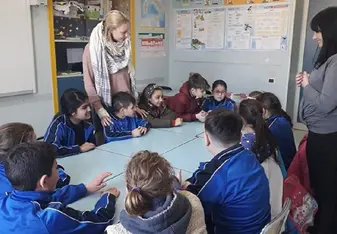Migrants and Refugees Assistance & Integration Support
- Italy
- Naples
About Program
Help the refugee and migrant community to gain a foothold in Europe by supporting shelters.
Organisations that work specifically with migrants and refugees in Italy and Naples generally have limited resources and rely heavily on local and international volunteer support to run their various initiatives.
These organisations require volunteer support in a wide variety of activities such as administration, management skills, and community workshops, supporting migrants with their daily activities and needs, cleaning, food distribution, event organisation, research, communication, and outreach. Daily volunteer tasks vary as required by the organisation in which volunteers are placed and according to their current initiatives. Volunteers with relevant experience can be given the opportunity to participate in counselling and legal support for migrants seeking humanitarian asylum.
Video and Photos
Program Highlights
- Make a meaningful impact by volunteering to assist migrants and refugees in their journey to integrate into the community, offering vital support and guidance
- Take the lead in organizing and conducting workshops and training courses, providing valuable support to empower individuals on their path to success
- Play a crucial role in supporting asylum seekers through the application process, offering assistance in preparing necessary documents and ensuring they receive the help they need
- Immerse yourself in the rich Italian culture, from its captivating history and art to its mouthwatering cuisine and breathtaking natural beauty
- Forge new friendships with like-minded volunteers who share your passion for animals and adventure
Program Impact
The organisations that operates at the territory host hundreds of refugees. Their primary job is to provide legal and psychological support to the asylum seekers during their application process and support them in obtaining documents, permits and access to public services. In particular, the organisations have to deal with the frequent long delays in the application process by the Territorial Commissions, delays that can last up to two years. Addressing this “limbo state” is the hardest and most complicated job for these organisations. Often they have to deal with financial difficulties (due to the inherent delays of payments by the P.A.) and the pressure to accommodate more guests due to the intensification of the migratory flow. As a result they find themselves with a significant amount of work whilst having to ensure services without having the necessary resources and adequate staff. The most effective impact would be in improving the services, helping the organisations to build networks, researching best practice and planning new interventions. These are usually the most penalized activities in day-to-day management and in times of emergency.








